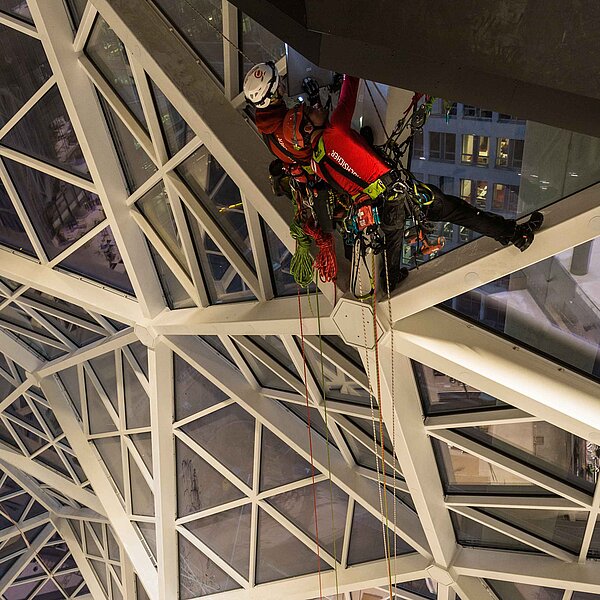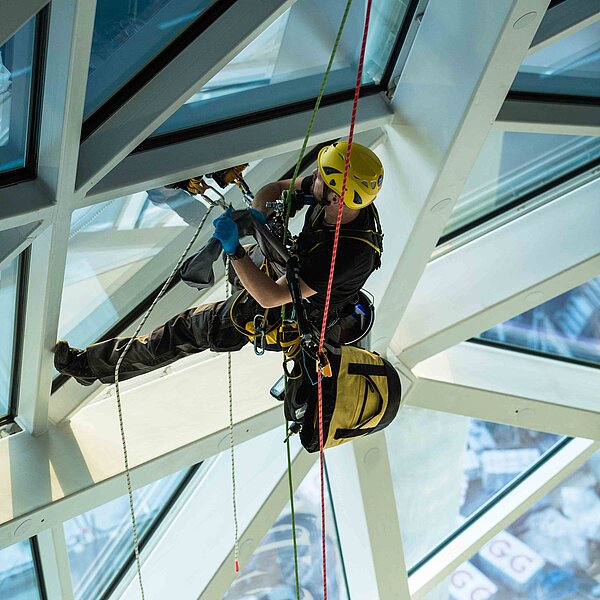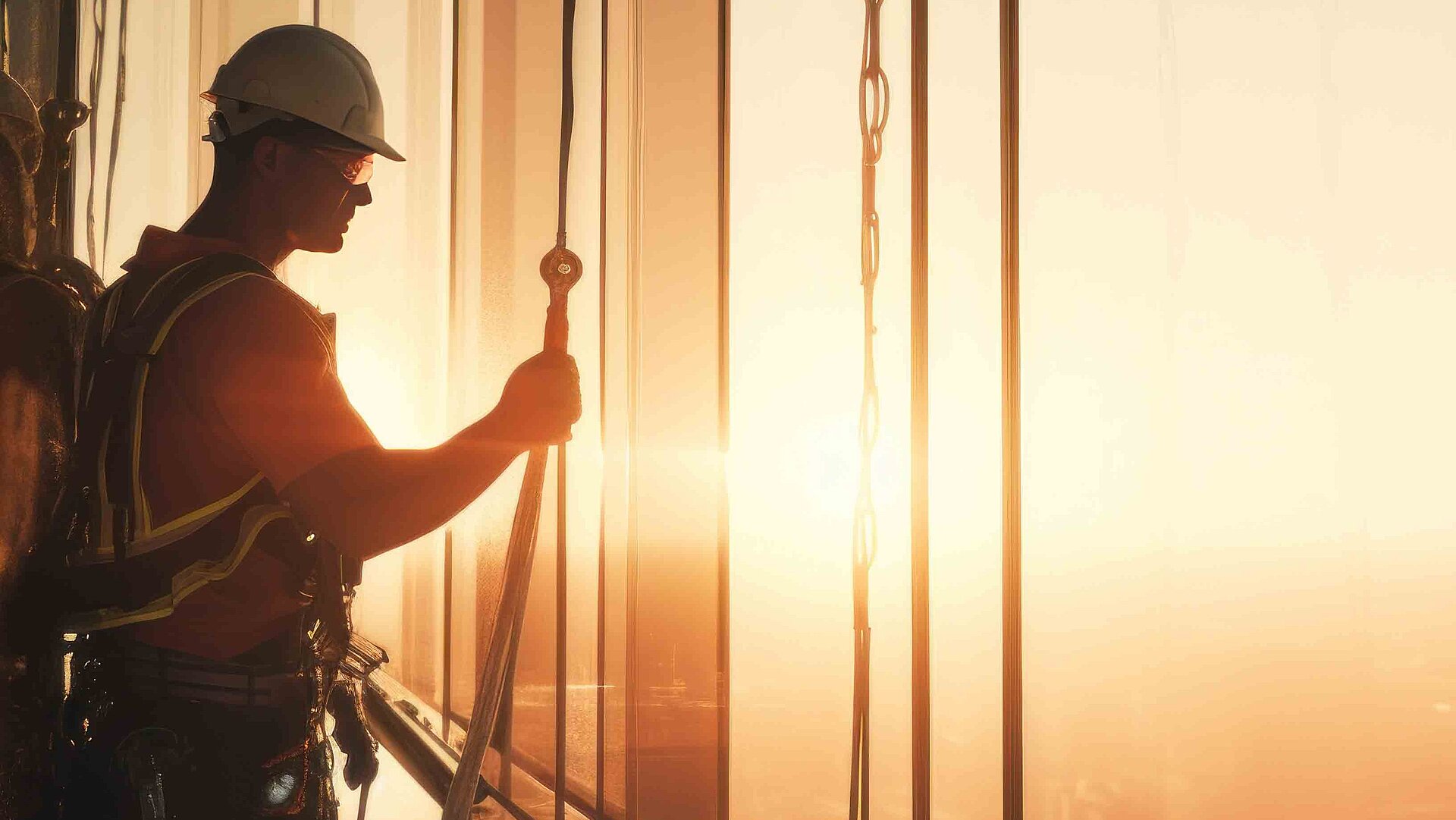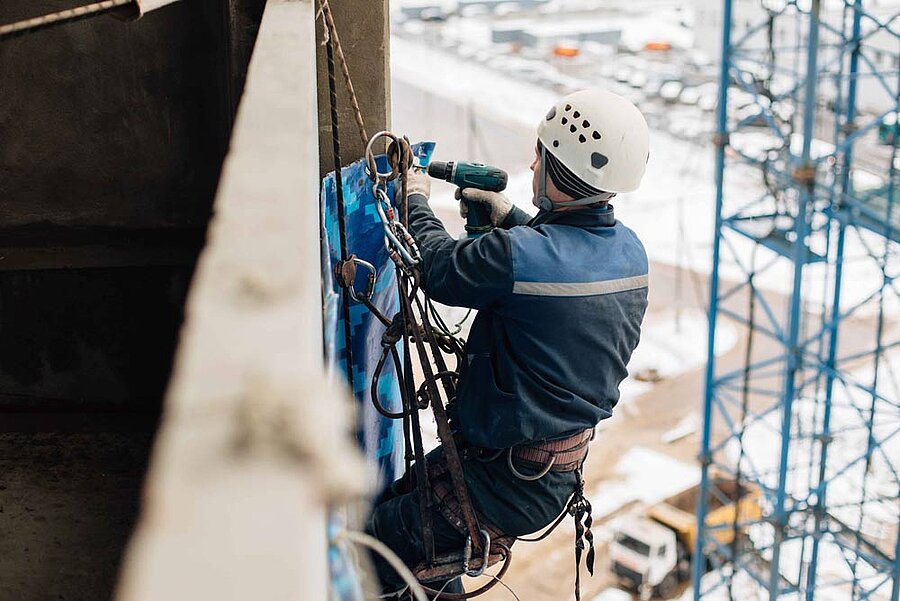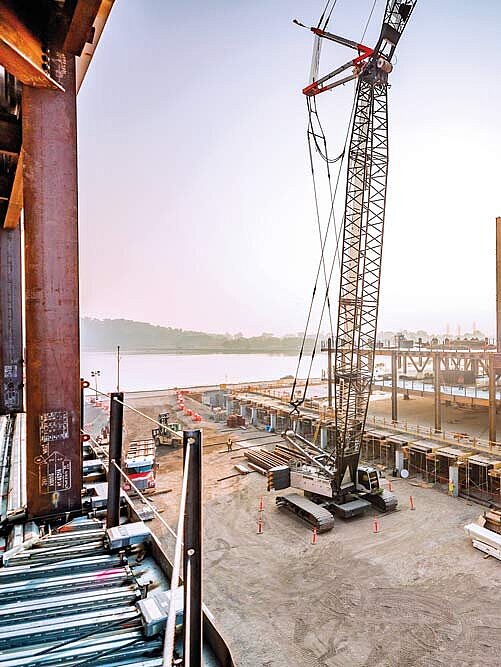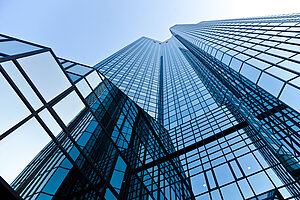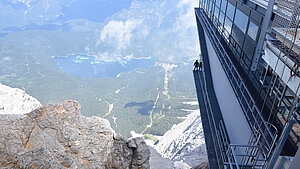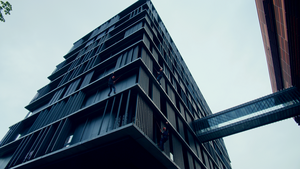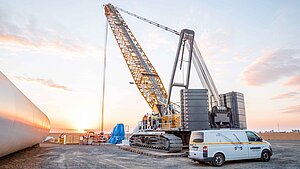What does an industrial climber do?
Industrial climbers, often also known as workers at height, are highly qualified specialists who deploy cable-based techniques/rope access and positioning technologies in order to perform tasks at difficult-to-access locations. This professional group is particularly in demand when tasks at height have to be performed, and they would be unreachable or too expensive for normal means of access such as cranes or scaffolding. These specialists work predominantly at great height, and this requires maximum safety and dexterity.
The operating areas of industrial climbers are extremely varied, and involve numerous duties. These include:
Servicing and repair tasks on industrial equipment: These include deployments on wind turbines and cableways, where industrial climbers apply their special expertise and knowledge in order to service and repair equipment at dizzying heights.
Working on high-rise buildings and bridges: Industrial climbers take on tasks such as the inspection, repair and maintenance of high-rise buildings and bridges, where conventional methods of access are often inefficient.
Tree surgery: They are also responsible for pruning trees precisely and safely in various situations.
Mounting large publicity posters: Industrial climbers are often employed for installing large publicity posters safely in difficult-to-access locations.
Cleaning industrial chimneys: In addition to physical dexterity, this specialised task also requires working knowledge about the chimneys themselves.
Cleaning and maintenance tasks on facades and shafts: Industrial climbers are also able to perform cleaning and maintenance tasks on facades and shafts, which means that they can be deployed flexibly in various industrial contexts.
This diversity of tasks makes the profession of industrial climber extremely varied, and requires a wide range of skills, from technical knowledge to safety-consciousness and precision when working.
Equipment and safety aspects in the profession of the industrial climber
Working at dizzying heights requires special equipment. Industrial climbers are equipped with certified personal protective equipment (cables, safety harnesses and helmets), which ensures safety in the fall-risk area. Every detail of their equipment is critical, because it protects their life and health. The personal protective equipment (PPE) must therefore fulfil strict safety standards, and it must be inspected regularly for its correct functioning.
PPE from INNOTECH complies with various safety standards (EN 354, EN 358, EN 360, EN 361, EN 632, EN 795 TYPE B, EN 813), and is certified to the latest state of the art. When combined with a rail or cable safety system, this equipment provides industrial climbers with ideal protection from falls.
Because of the serious risks related to working at height, it is of central importance to be conscious of safety and responsibility. The ability to remain calm and concentrated under pressure is just as important as physical fitness and a head for heights. Taking an occupational health aptitude test is a good idea.
Well-grounded training as an industrial climber
Becoming an industrial climber often starts with the “manual skills” factor and/or vocational training as a craftsman, followed by specialised courses for cable-supported working methods – in other words, rope access and positioning technologies. These courses, certified by organisations such as FISAT or IRATA, include theory and practice. According to FISAT, the German Association for Rope Access, Level 1 training covers areas such as
- Legal provisions
- Knowledge of knots
- Material science
- Rope protection and various climbing techniques
- Anti-fall protective equipment, etc.
As a rule, training for industrial climbers concludes with a test and certification. After successful completion the FISAT Level 1 training course, further advanced courses can then be taken. The Level 2 course focuses particularly on horizontal rope access and on working with a partner. Advanced rescue techniques are also taught at this level.
The Level 3 FISAT course is exclusively for experienced industrial climbers who wish to take on a supervisory role. It build on FISAT Level 2. In addition to the assessment of risk, subjects such as accident prevention instruction and selection of anchor points are dealt with. The focus remains on occupational safety and health protection, as well as standards and legal requirements.
In addition to the technical skills, the training of industrial climbers also includes extensive knowledge of the areas of safety, first aid and rescue techniques.
Future perspectives and development
Industrial climbers contribute significantly to the maintenance and safety of modern infrastructure. They work in a wide range of activities, especially those where normal methods are not practical. Their work is critical, not just for maintenance, but also for the safety and durability of structures.
For this reason, and because of the steady growth and complexity of modern buildings, there is a continuous demand for qualified industrial climbers. The ability to perform specialised maintenance tasks, which would otherwise be difficult or impossible to access, makes industrial climbers an indispensable component of many branches of industry.
Industrial climbers thus represent a unique combination of craft, technique, and adventure. Their work is not just a profession, but often also a passion which requires both physical fitness and mental endurance. The special skills and commitment of these specialists contribute significantly to the safety and functioning of our built environment.
For further details about training to become an industrial climber and about the standards relating to industrial climbing, you can visit the website of the German Association for Rope Access (FISAT). There you will also find out much more about the various levels of training to become a certified industrial climber.
